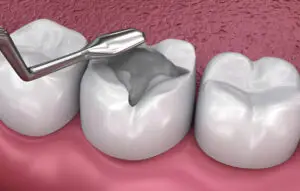Toothaches can be excruciating and disruptive. They can interfere with your ability to eat, sleep, and focus on daily activities. Toothaches are often caused by cavities, gum disease, or infections. They need professional treatment. However, until you can see a dentist, here are some effective ways to find relief:
1. Maintain Oral Hygiene
One of the most common causes of toothaches is trapped food particles between teeth. If left unchecked, these particles can lead to decay or infection, causing discomfort. Brushing and flossing keep your mouth clean. They also reduce the chance of a toothache.
- Brushing: Use a soft-bristled toothbrush and fluoride toothpaste to gently clean your teeth. Make sure to clean all surfaces thoroughly without applying too much pressure, which can exacerbate pain.
- Flossing: Flossing between teeth removes debris that brushing may miss. Be gentle to avoid irritating the gums or tooth, especially around the painful area.
Maintaining good oral hygiene can help reduce bacteria that might contribute to pain.
2. Use a Cold Compress
If your toothache is swollen or the pain spreads to your jaw and face, a cold compress can help. This is especially helpful for reducing inflammation and numbing the pain.
- Application: Wrap an ice pack or a bag of frozen vegetables in a cloth and apply it to the affected area for 15-20 minutes at a time.
- Frequency: Repeat this process several times throughout the day, leaving at least an hour between sessions.
The cold compress helps reduce pain by constricting blood vessels, thereby limiting blood flow to the area.
3. Take Over-the-Counter Pain Relievers
Pain relief drugs can help manage toothache. They work until you can see a dentist.
- Ibuprofen: Known for its anti-inflammatory properties, ibuprofen can reduce pain and swelling.
- Acetaminophen: This is a good alternative for those who cannot take anti-inflammatory medications. It helps alleviate pain without reducing inflammation.
Follow the dosage on the medication’s label. Ask a doctor if you’re unsure about the right dose for your condition.
4. Rinse with Salt Water
Salt water is a natural disinfectant and can help reduce inflammation, easing tooth pain.
- Preparation: Dissolve a teaspoon of salt in a glass of warm water.
- Usage: Swish the solution in your mouth for at least 30 seconds before spitting it out.
This rinse can also help remove irritants causing the discomfort. It also promotes faster healing of affected tissues.
5. Try a Hydrogen Peroxide Rinse
Hydrogen peroxide is known for its antibacterial properties and can help reduce pain by killing bacteria and reducing inflammation.
- Preparation: Dilute a 3% hydrogen peroxide solution with an equal amount of water.
- Usage: Swish the solution around your mouth, ensuring it comes into contact with the affected area.
Be cautious not to swallow the rinse, as it can be harmful if ingested.
6. Apply Clove Oil
Clove oil contains eugenol, a natural pain-relieving compound with antibacterial properties. It’s a traditional remedy for tooth pain.
- Application: Put 2-3 drops of clove oil on a cotton ball and gently place it on the affected tooth.
- Alternative: Mix a few drops of clove oil with water and use it as a mouth rinse.
Clove oil provides temporary relief and can also help fight bacteria that may be causing the infection.
7. Garlic Paste
Garlic is another natural remedy that can help reduce tooth pain due to its antibacterial properties.
- Preparation: Crush a garlic clove to form a paste.
- Application: Apply the paste directly to the painful area.
Although it may sting a bit initially, garlic can help alleviate the pain by killing bacteria responsible for the infection. However, avoid using raw garlic on children, as it might irritate their sensitive tissues.
8. Use Peppermint Tea
Peppermint tea contains menthol, which has numbing properties that can help soothe a toothache.
- Preparation: Brew peppermint tea and let it cool.
- Usage: Use the tea as a mouth rinse or apply a cooled tea bag directly to the aching tooth.
Peppermint tea’s soothing effect can provide relief while also offering antibacterial benefits.
9. Try Thyme Oil
Thyme oil is another natural remedy that contains antibacterial and antioxidant properties to help fight bacteria and alleviate tooth pain.
- Application: Place a few drops of thyme oil on a cotton ball and apply it to the painful area.
- Alternative: Add a few drops of thyme oil to a glass of water and use it as a mouth rinse.
Thyme oil’s medicinal properties can help reduce pain and promote healing.
10. Apply Vanilla Extract
Vanilla extract contains both antioxidants and alcohol, which can provide temporary relief by numbing the affected area.
- Application: Place a few drops of vanilla extract on your finger and gently rub it on the aching tooth.
While the numbing effect may be temporary, it can help relieve discomfort until you can see a dentist.
11. Use Over-the-Counter Anesthetic Gels
Several over-the-counter gels contain anesthetics like benzocaine that can numb the mouth and provide short-term toothache relief.
- Application: Follow the instructions on the product to apply the gel directly to the affected area.
These gels offer immediate pain relief and can be particularly helpful for severe toothaches.
When to See a Dentist
Home remedies only give temporary relief. So, see a dentist in Aberdeen if the pain continues or gets worse.
- Persistent Pain: If the pain lasts after 1-2 days of home treatment, you need a pro evaluation.
- Severe Pain: Intense pain, especially with additional symptoms like fever or earache, needs prompt dental attention.
Preventing Toothaches
The best way to avoid toothaches is through preventive measures.
- Good Oral Hygiene: Brush your teeth twice daily with fluoride toothpaste and floss daily.
- Mouth Rinsing: Rinse your mouth after meals or use an antiseptic mouthwash.
- Regular Dental Visits: Schedule dental cleanings twice a year to catch potential issues early.
- Healthy Diet: Avoid excessive sugar and consume a balanced diet to keep teeth healthy.
Conclusion
While home remedies can help alleviate toothache pain temporarily, it’s crucial to seek professional dental care for proper diagnosis and treatment. Maintaining a healthy oral hygiene routine and regular dental visits are key to preventing toothaches in the future.
Visit Bridge St Aesthetic and Dental Implant Clinic for Lasting Relief
While these home remedies can help you find temporary relief from toothache pain, it’s essential to consult a professional for long-term solutions. At Bridge St Aesthetic and Dental Implant Clinic, our experienced team of dental experts is here to provide comprehensive care tailored to your needs. From thorough examinations to personalised treatment plans, we aim to restore your oral health and relieve your pain.
Don’t let a toothache disrupt your life any longer. Contact us today to schedule an appointment and take the first step towards a pain-free smile!






